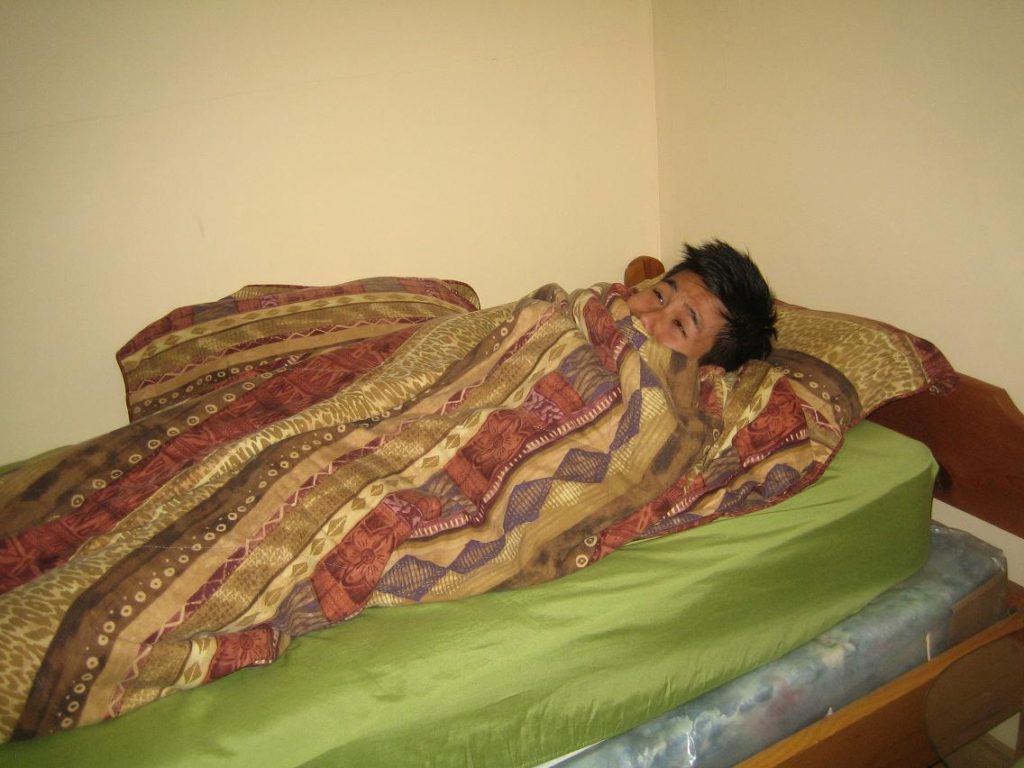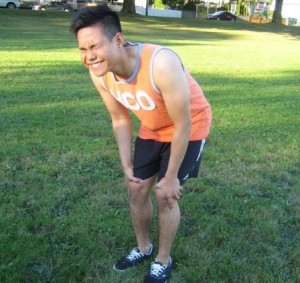Restless leg syndrome is a condition that causes discomfort and overwhelming urge to move the legs especially while lying or sitting down. It affects sleeping, and sometimes results to insomnia and makes traveling long distances in trains, planes and car very difficult.
Symptoms of restless leg syndrome
- Uncomfortable sensations in the legs and sometimes affects the arm or other parts of the body and there is an irresistible urge to move the affected area to relieve of the discomforts.
Uncomfortable sensations in the legs and sometimes affects the arm or other parts of the body and there is an irresistible urge to move the affected area to relieve of the discomforts. - Discomfort, “itchy,” “pins and needles,” or “creepy crawly “sensation felt in the legs and becomes worse when resting especially lying and sitting.
- Symptoms becomes severe in the evening and night
- Causes severe nightly sleep disruption
Causes
- Medical conditions that includes Parkinson’s disease, kidney problems, diabetes, peripheral neuropathy and iron deficiency.
- Medications that include allergy medications, antipsychotic drugs and anti- nausea medications
- Experiencing restless leg syndrome especially in the last trimester of pregnancy and disappears after delivery.
- Use of alcohol
- Sleep deprivation
Treatment
- Practice good sleeping hygiene such as a cool, quiet and comfortable sleeping environment. Maintain a sleeping schedule such as going to bed and rising at the same time every day.
- Avoid caffeine and alcohol, both causes disruption in sleeping when suffering from restless leg syndrome. Avoid coffee, colas, black tea, soda pop, chocolate and energy drinks, they contain caffeine. Drink non-alcoholic beer.
- Apply warm packs before sleeping at night to relax the muscles and lessen the symptoms of restless leg syndromes. Another alternative is using a rice heating pack. Place the rice heating pack in the microwave for a few minutes and then apply to the affected legs for at least 15 minutes to lessen the pain and soothe the legs. If the room is warm, apply cool and moist towels to the affected area to relax the legs.
- In a bathtub filled with warm water, add 1 cup of Epsom salt and then mix them well until salt is totally dissolved. Soak in the solution for at least 20 minutes before sleeping at night to hydrate the tissues and for proper blood circulation in the area. It also relaxes the tight muscles. Epsom salt is rich in magnesium which is mineral muscles that stops spasms and relaxes the affected area.
Additional measures
- Avoid being dehydrated. Drink plenty of fluids at least 8 glasses of purified water every day to prevent cramping and twisting of muscles. Avoid caffeinated drinks to prevent stimulation of urination and cause dehydration. Sources of hydration includes fresh fruits and vegetable juices, herbal teas, low-fat milk, almonds and rice milk.
- Massage the affected area at least for 30 minutes, 3 times every week. Massage the area especially the calves and feet to lessen the symptoms of restless leg syndrome. After the massage drink, plenty of water to flush out toxins to lessen soreness and nauseous sensations.
FACT CHECK
https://www.nhs.uk/conditions/restless-legs-syndrome/
https://www.webmd.com/brain/restless-legs-syndrome/restless-legs-syndrome-rls#1
https://www.mayoclinic.org/diseases-conditions/restless-legs-syndrome/symptoms-causes/syc-20377168


